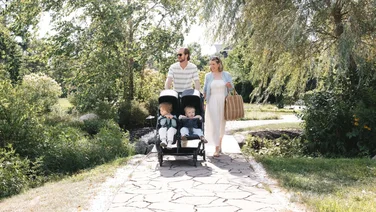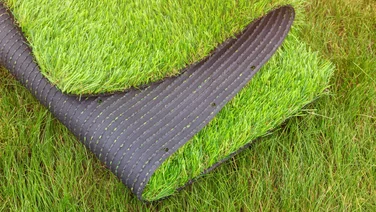To help us provide you with free impartial advice, we may earn a commission if you buy through links on our site. Learn more
- Best trees for small gardens: At a glance
- How to choose the best trees for small gardens
- The best trees for small gardens you can buy in 2024
- 1. Cercis siliquastrum Judas tree: Best tree for full sun in a small garden
- 2. Yuzu Citrus Plant: Best tree in a container for a small garden
- 3. Betula pendula Silver Birch: Best tree for privacy in a small garden
- 4. Acer palmatum ‘Red Emperor’ Japanese Maple Tree: Best tree for beautiful foliage in a small garden
- 5. Sorbus aucuparia mountain ash rowan: Best tree for attracting wildlife in a small garden

There’s a lot to consider when choosing the best trees for small gardens, from their height, shape and proportions to their decorative appeal throughout the changing seasons. Maybe you need some privacy from nosy neighbours, or you’re keen to invite more wildlife into your garden and help out the local ecosystem. Perhaps you’d like to harvest fruit for making jams or baking, or just give your yard a splash of much-needed colour in the winter months.
Whatever your preference, we’ve put together some of the best trees to suit a small garden, including trees that will thrive in a shady spot, trees that can be kept in a container, and trees that will welcome in as many birds and bees as possible. We’ve also collated some top tips to help you determine what will work best for your specific garden.
Best trees for small gardens: At a glance
| Best small tree for full sun | Judas Tree (~£35) | |
| Best small tree in a container | Yuzu Citrus Plant (~£50) | |
| Best tree for attracting wildlife in small gardens | Mountain Ash Rowan (~£70) |
How to choose the best trees for small gardens
What conditions does your garden have?
It’s important to understand your garden to be able to choose the right type of tree for it. Different types of plants will thrive, die or just barely survive, depending on a few factors.Type of soil – Gardens in the UK tend to have either clay soil, silt soil or sandy soil. Clay soil is heavy, sticky and slow draining; silt soil is easily compacted; and sandy soil tends to be gritty and light and will dry out quickly. Knowing your soil type will help greatly in choosing which trees will flourish, versus those that may not grow so well.
Amount of sunlight or shade – Depending on your garden’s aspect and the surrounding buildings or existing trees, the amount of sun it receives might range from full, all-day sunshine to full or dappled shade, to only early morning or late afternoon light. North-facing gardens will often have less direct sunlight and are typically more sheltered and much shadier, while south-facing gardens soak up the sun but will also bear the brunt of any scorching hot spells.
Weather conditions – A lot of trees appreciate a sheltered spot, while an area that’s open to high winds or plenty of rain will need hardier trees to be able to withstand such inclement weather.
Why are you planting your tree?
Considering your main purpose for planting a tree is a great way to narrow down your options. For example, if you intend the tree to be a privacy barrier between you and your neighbours, you might look at pleached trees. They twist their branches together to create a screening effect with their canopy, while still keeping their trunks relatively bare. Alternatively, if you’re mainly looking for a lightly shaded spot to sit beneath in the heat of summer you should look for a tree that typically has a generous spread of foliage.
It’s also highly recommended to plant trees that are native to the area. This will not only benefit local wildlife and ecosystems, it will also require less maintenance as the trees will naturally thrive left to their own devices.
How tall is too tall for your tree?
The eventual height and spread are a significant factor in choosing a tree; even the tiniest saplings can eventually tower over your house if it’s in their genes. If it grows enough, the canopy may eventually cross boundary lines, casting shade on your neighbour’s property or blocking their windows. If that happens then be prepared to trim the tree or you may face some unpleasant disputes.
Don’t forget that some trees will have only shallow roots while others will have deep roots that can spread up to three times the height of the tree itself. If planted next to buildings, this may cause damage to the foundations, so be mindful.
If you’re worried, look for dwarfing rootstock, which reduces the chance of excessively tall trees.
What stage of tree growth are you looking for?
Aside from any benefits you’d like to get from your tree, it’s also worth considering how much work you’re willing to put in.
Specimen or semi-mature trees are larger and typically more expensive, but they will make an immediate impact in your garden, including giving you shade or privacy. If you want to buy a tree that’s already established, you’re better off doing this in late autumn onwards, when you can plant it out straight away.
On the other hand, if you plant a sapling or a much smaller tree and then cultivate it yourself it will take longer to reach the height and shape you’re after, but it’s a labour of love. These trees are often available to be purchased potted or in containers.
The best trees for small gardens you can buy in 2024
1. Cercis siliquastrum Judas tree: Best tree for full sun in a small garden

Price when reviewed: £35 (3.6l pot) | Check price at Van Meuwen
A sunny patch of garden deserves a stunning tree to soak up those rays, and the Judas tree is a perfect choice. Also called the love tree, cercis siliquastrum is an early flowering tree, showing spring blossoms that quickly cover the branches, and even the trunk, in both dark and pale pink flowers. The foliage has its own show, independent of the blossoms, as you’ll be treated to bronze and gold leaves in autumn.
From a small garden perspective, the Judas tree is slow-growing and fairly compact, so it’s usually sold as a potted tree – this one comes in a 3.6l pot. The Judas tree is happy in most types of soil as long as it’s well draining, though it will be happiest when planted in chalky or limestone soil. It prefers full sun, but it can also be planted in a sheltered spot with light shade.
Key details – Mature height and spread: 8-12m x 8-10m; Preferred position: Full sun to partial shade; Preferred soil type: Chalk or limestone, well draining
2. Yuzu Citrus Plant: Best tree in a container for a small garden

Price when reviewed: £50 (3l pot) | Check price at Suttons
Anyone can grow an orange tree or a lemon tree – they’re classic fruit trees – but why not try growing a less common kind of citrus fruit, something a little more unusual? The Japanese yuzu tree grows surprisingly well in the frequently chilly UK climate, thanks to its hardy nature – it can cope with temperatures as low as -5°C, though it’s perhaps preferable to bring plants inside at that point.
The fruits of the yuzu tree are flavourful and tart, though not as sharp as lemon, and they’re delicious when used for their zest. Tangerine-sized and a bright, buttery yellow, they look gorgeous in the sunshine. Of course, fruiting trees need plenty of moisture, particularly during their growing season, along with plenty of organic matter in their potting soil. But keep an eye on their watering schedule and you’ll be rewarded with ripening fruits from late autumn until December.
This yuzu plant from Suttons is well established at around 60-70cm tall, and is delivered in a three-litre pot. While it can theoretically be planted out, opting to grow a yuzu as an ornamental container tree means you can easily reposition it for the best conditions according to the plant’s needs and the time of year.
Key details – Mature height: 1-1.5m; Preferred position: Full sun but sheltered from wind; Preferred soil type: Light, well-draining soil that’s moist but not overwatered
3. Betula pendula Silver Birch: Best tree for privacy in a small garden

Price: £25 (3l pot) | Check price at B&Q
If you’re looking for a tree that can provide a little privacy, you can’t go wrong with a silver birch. These elegant trees have tall, slender, silvery trunks and multiple ornate stems that help to create a screen even when devoid of leaves in the winter. You’ll see yellow-green catkins in the spring, followed by an airy canopy of bright green leaves in the summer, which turn a golden yellow before falling in the autumn.
Silver birch trees are perfect for small gardens as they’re low maintenance, easy to grow, and shoot up pretty quickly, but their canopy never grows too dense and their root system is shallow enough to not affect building foundations. That said, you should still plant silver birches at least three metres away from your house to ensure a safe distance, and if you’re planting a few trees together, you should space them one to three metres apart.
Trees Direct has various sizes of silver birch to choose from, from bare-rooted trees to two-and-a-half-metre trees in a 10l pot.
Key details – Mature height: 17-20m; Preferred position: Full sun to partial shade; extremely hardy so can cope with wind and exposure; Preferred soil type: Moist and well-drained soil of most types
4. Acer palmatum ‘Red Emperor’ Japanese Maple Tree: Best tree for beautiful foliage in a small garden

Price when reviewed: £80 (10l pot) | Check price at Gardening Express
Also known as Japanese maple, the classic acer palmatum tree is a firm favourite in the UK, being hardy and relatively low maintenance. They’re fairly small trees with a compact shape that’s usually broader than tall, and they grow slowly and gracefully which makes them a great choice as a focal point for small gardens or restricted spaces. But it’s their stunning, richly coloured foliage that’s the real draw, with each variety of acer boasting bright, elegantly shaped leaves that last from early summer through to late autumn. This ‘Red Emperor’ variation has dark purple leaves that transition to a brighter red as the season changes.
Japanese maples are happy either being planted out or remaining in a container, with the latter allowing for some ornamental styling, which is why they’re often used as bonsai trees. If planted out, they can take decades to reach their full height, and most will only reach about six feet tall anyway. Regardless, they will appreciate a sheltered spot with some shade, at least during the hottest part of the day, as their foliage can scorch in bright sun.
Key details – Mature height and spread: 8m x 8m; Preferred position: Dappled shade, sheltered from wind; Preferred soil type: Moist, well-draining soil
5. Sorbus aucuparia mountain ash rowan: Best tree for attracting wildlife in a small garden

Price when reviewed: £70 (9-litre pot) | Check price at Crocus
Rowan trees are a haven for all types of wildlife throughout the year – caterpillars lay claim to the branches, bees love the white flowers for their nectar and plenty of birds will descend on the clusters of orange berries in autumn when they’re accompanied by golden leaves.
Once established, the rowan is a compact tree and needs little care beyond some annual mulching. They’re particularly hardy, coping with frost and deluges all winter long and they’re happy in most types of soil, as long as it’s moist but well-drained. Though they will manage in partial shade, they would benefit from around six hours of sun each day.
A rowan’s height can reach up to 15 metres over a few decades, so think ahead about placement and double-check what variety you’re buying. Crocus has over a dozen rowan variants, including this sorbus aucuparia, which are native to much of the UK.
Key details – Mature height and spread: 15m x 7m; Preferred position: Full sun to partial shade; Preferred soil type: Moist, well-drained soil






